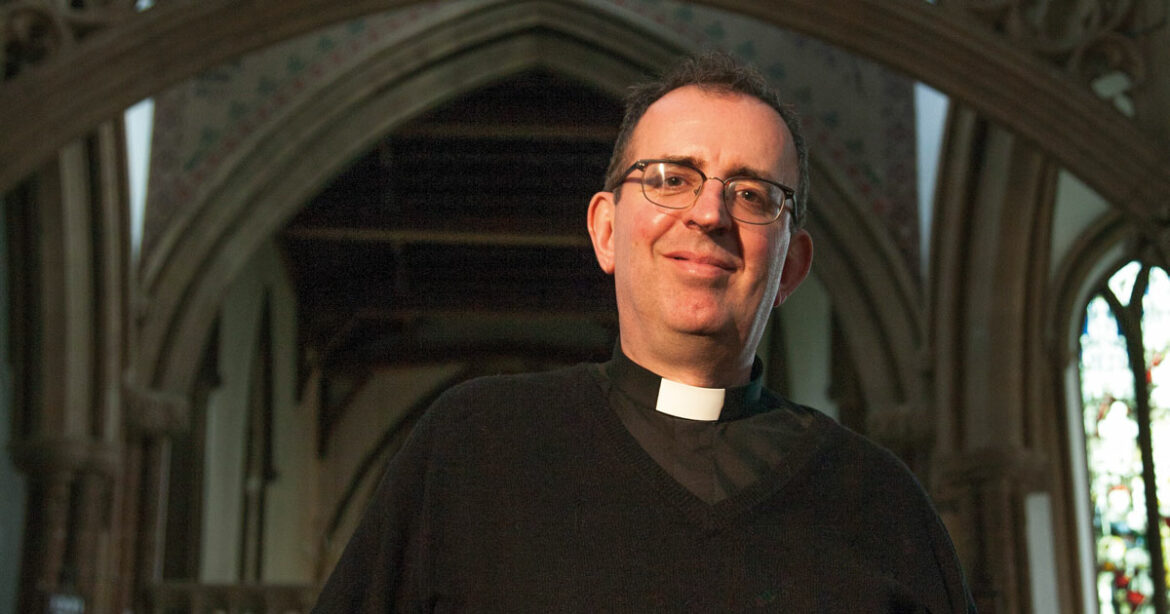Miriam Balanescu sits down with the Reverend Richard Coles ahead of his arrival at Waterstones Cambridge
Image: Revd Richard Coles © NMP Live Ltd | www.nmplive.co.uk
With murky confessions and uneven moral ground his daily bread, the Reverend Richard Coles had long wanted to try his hand at crime writing. Feeding off the fiction of Ngaio Marsh and Dorothy Sayers while touring with the Communards – and after a long run as vicar of Finedon – he put pen to paper, creating Murder Before Evensong.
“Parishes are laboratories of the human condition,” Richard explains. “Everybody is rubbing along. There’s the surface version, then the beneath-the-surface version, which most only deal with glancingly. If you’re clergy, those deeper currents are your daily experience.”
In quaint Champton, when rector Canon Daniel Clement suggests installing a lavatory in the church, the tensions knotting this seemingly harmonious area come undone. “One of the reasons crime fiction works is because it makes explicit the anxieties that underlie even the most settled and stable communities,” he says.
Although both men of the cloth, Richard has little in common with Daniel. “A couple of clergy members I’ve known struck me as having the detachment and sympathetic engagement I wanted. Daniel’s much more buttoned down than me, more self-controlled,” asserts Richard. The first in the Canon Clement Mystery series – the second is underway, with plans crystallising for the third – Daniel’s character will transform as it continues.
Writing on his iPad Pro, Richard most often works from the kitchen table – or at sea, where he sometimes gigs on cruise liners. “My partner David built me a lovely writing shed in the garden, but it got taken over by the dogs in the end.
“One of the things I love about being at sea is a sense of feeling at an angle from the world,” Richard continues. “There are times on a flat ocean when there’s nothing else for miles around. There you are on deck, and it’s almost like being in space. It gives you circumspection. Human dynamics on a cruise liner are fascinating – book three will probably be set on one.”
Richard’s foray into the imagined follows years of non-fiction, from The Times Literary Supplement articles to bestselling memoirs. “With non-fiction, you don’t have to think of what happens next so much,” he adds. “If you write a character, it takes on a life of its own. Finding a way of keeping the necessary control and letting the book happen at the same time – that’s an interesting one.”
Religion filtered into all of Richard’s life, including his way with words. “I grew up as a chorister in the Anglican choral tradition. The cadences of the King James Bible and Book of Common Prayer are deeply imprinted in me,” he says. “That affects how I write, not just in terms of sound, but the way language attempts to express meaning. I’m a New Testament textual critic; looking closely at how meaning is captured and released by competing texts fascinates me. I’ve never solved a mystery, but most of my sleuthing has been over texts and their tiny differences.”
Richard’s career has had many chapters. While working in BBC Arts, he realised his interests were multifarious. “As Archilochus said: the fox knows many things; the hedgehog knows one. I was a fox trying to understand what it was like to be a hedgehog. That’s changed how I think.”
‘Living life in its fullness’ underpins Richard’s choices, leading him down novel paths. “Be not afraid,” he says. “It’s a constant refrain of Jesus when he’s talking to the disciples. Their world is collapsing. They’re surrounded by hostile elements. He just keeps saying, ‘Don’t be afraid.’”
Having lived near Cambridge while growing up – nearly studying at Magdalene College – Richard looks forward to talking at Waterstones on 27 June. “I would have been a don if I was clever enough – which I don’t think I am,” he says. “There’s a version of myself that would have been discovered dead for three weeks, under a copy of The Church Times in a senior common room, unnoticed by the world.”

